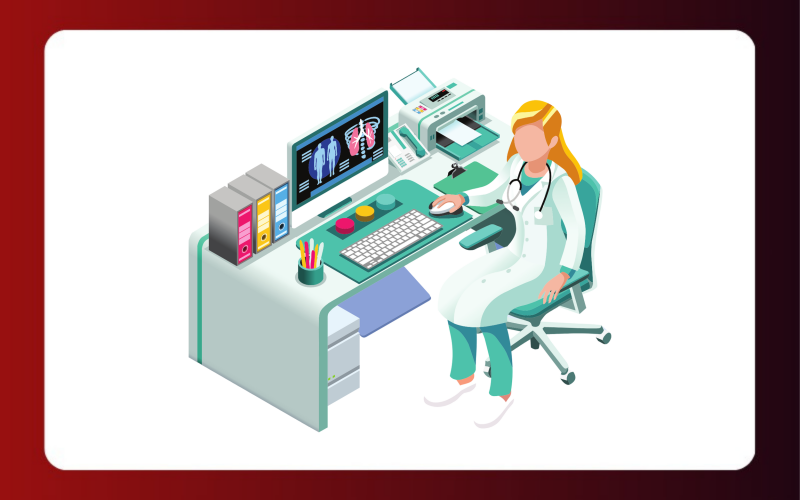Admission Enquiry

A Master of Vocation (M.Voc.) in Healthcare with a specialization in Medical Image Technology (MIT) is a program designed to provide advanced training in the acquisition, processing, interpretation, and management of medical images used in diagnosis, treatment planning, and medical research. This vocational program aims to equip students with the knowledge and skills necessary to work as medical imaging technologists, radiographers, or imaging scientists in healthcare facilities, research institutions, and imaging centers.
The curriculum of the M.Voc. in Healthcare/Medical Image Technology program covers a wide range of subjects related to medical imaging modalities, including radiography, computed tomography (CT), magnetic resonance imaging (MRI), ultrasound, nuclear medicine, and molecular imaging. Students learn about the principles of medical physics, radiation safety, anatomy and physiology, image acquisition techniques, and image processing algorithms.
Additionally, students study topics such as radiographic positioning, contrast media administration, image quality assessment, and advanced imaging applications to understand the role of medical imaging in diagnosing and treating various medical conditions. They also learn about healthcare informatics, picture archiving and communication systems (PACS), and electronic medical records to manage and retrieve medical image data efficiently.
Practical training components, including clinical rotations, laboratory sessions, and internships, allow students to gain hands-on experience in performing medical imaging procedures, operating imaging equipment, and interacting with patients in clinical settings. They learn to collaborate with radiologists, physicians, and other healthcare professionals to obtain high-quality diagnostic images and ensure patient safety and comfort during imaging procedures.
Throughout the program, students develop critical thinking, problem-solving, and communication skills essential for analyzing medical images, interpreting diagnostic findings, and communicating results to healthcare providers and patients. They also learn to adapt to emerging technologies and advancements in medical imaging, such as artificial intelligence, 3D imaging, and image-guided interventions, to enhance diagnostic accuracy and patient care outcomes.
Upon completion of the program, graduates can pursue career opportunities in various healthcare settings, including hospitals, diagnostic imaging centers, outpatient clinics, and research laboratories. They may work as radiologic technologists, MRI technologists, CT technologists, nuclear medicine technologists, or PACS administrators, where they play crucial roles in providing high-quality medical imaging services and contributing to the diagnosis and treatment of medical conditions.
Overall, the M.Voc. in Healthcare/Medical Image Technology program offers specialized education and practical training to healthcare professionals seeking to excel in the field of medical imaging. By providing comprehensive theoretical knowledge and clinical skills training, the program prepares graduates to meet the growing demand for skilled imaging technologists and contribute to the advancement of healthcare through innovative imaging technologies and practices.
Copyrights © 2024 NIILM UNIVERSITY. All rights reserved.